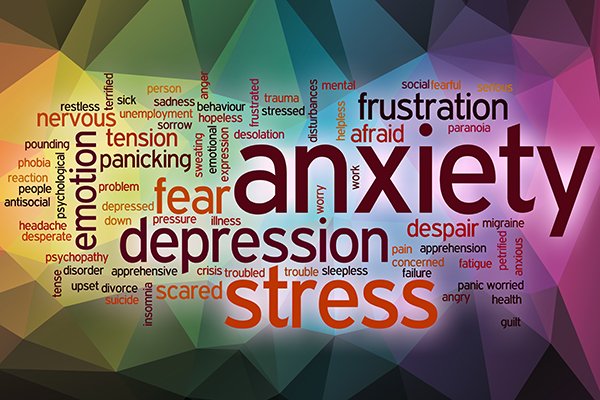 Parler
Parler Gab
Gab
- A new study links anxiety disorders to significantly lower brain choline levels.
- This is the first meta-analysis to identify a consistent chemical pattern in anxious brains.
- Researchers suggest nutritional strategies with choline may help restore brain chemistry.
- Anxiety disorders are the most common mental illness, affecting 30% of U.S. adults.
- Around 90% of Americans do not consume the recommended daily amount of choline.
A widespread mental health crisis
The implications of this research are vast, given the sheer scale of the problem. Richard Maddock, the study's senior author and a psychiatrist, emphasized the pervasive nature of these conditions. "Anxiety disorders are the most common mental illness in the United States, affecting about 30% of adults," Maddock said. "They can be debilitating for people, and many people do not receive adequate treatment." These disorders include generalized anxiety, panic disorder, social anxiety, and phobias. The research team theorizes that the constant state of high alert, or "fight-or-flight" activity, experienced by those with anxiety may increase the brain's demand for choline, thereby depleting its levels. While an 8% reduction may seem small, in the delicate environment of the brain, it is highly significant. "An 8% lower amount doesn't sound like that much, but in the brain it’s significant," Maddock confirmed.The critical role of choline
Choline is an essential nutrient, meaning the body cannot produce enough of it on its own. It must be obtained through diet. It is a cornerstone for cell membranes and is critical for brain functions including memory, mood regulation, and muscle control. Crucially, choline serves as a precursor to acetylcholine, a vital neurotransmitter essential for brain function. Certain medications for dementia, for example, aim to increase acetylcholine levels. This new research dovetails with a growing body of evidence highlighting a national choline shortfall. Independent analyses have indicated that around 90% of Americans are not consuming the recommended daily amount of choline. This widespread deficiency sets the stage for a public health crisis, potentially contributing not only to anxiety but also to other issues like fatigue, memory problems, and fatty liver disease. The researchers are cautiously optimistic but clear about the next steps. "We don't know yet if increasing choline in the diet will help reduce anxiety. More research will be needed," Maddock stated. He wisely cautions against self-medication with high-dose supplements but underscores the fundamental importance of a nutrient-rich diet for mental health. So, where can one find this powerhouse nutrient? The answer points toward wholesome, natural foods. "Someone with an anxiety disorder might want to look at their diet and see whether they are getting the recommended daily amount of choline," Maddock advised. He specifically noted that "some forms of omega-3 fatty acids, like those found in salmon, may be especially good sources for supplying choline to the brain." Other excellent sources include beef liver, eggs (with a single hard-boiled egg providing approximately 147 mg), chicken, and milk. For those on plant-based diets, roasted soybeans, tofu, tempeh, and peanuts are valuable sources, though vegetarians are known to be at a higher risk for inadequate intake. The recommended dietary allowance is 425 mg per day for women and 550 mg for men. This discovery challenges the conventional, often pharmaceutical-heavy, approach to mental health. It suggests that a simple, overlooked nutrient, abundantly available in whole foods, could play a fundamental role in calming an overactive brain and restoring emotional balance. Sources for this article include: MedicalXpress.com NeuroscienceNews.com BBC.co.ukGovernments continue to obscure COVID-19 vaccine data amid rising concerns over excess deaths
By Patrick Lewis // Share
Ultra-processed foods linked to surge in early-onset colorectal CANCER, study warns
By Patrick Lewis // Share
Social media use linked to lower reading and memory scores in children, new study finds
By Cassie B. // Share
A veil of secrecy: U.K. health agency withholds data amid excess death concerns
By Willow Tohi // Share
The silent rhythm of blood pressure: How daily habits shape your heart health
By Willow Tohi // Share
Personalized vitamin D supplementation halves risk of second heart attack, study finds
By Ava Grace // Share
Governments continue to obscure COVID-19 vaccine data amid rising concerns over excess deaths
By patricklewis // Share
Tech giant Microsoft backs EXTINCTION with its support of carbon capture programs
By ramontomeydw // Share
Germany to resume arms exports to Israel despite repeated ceasefire violations
By isabelle // Share








